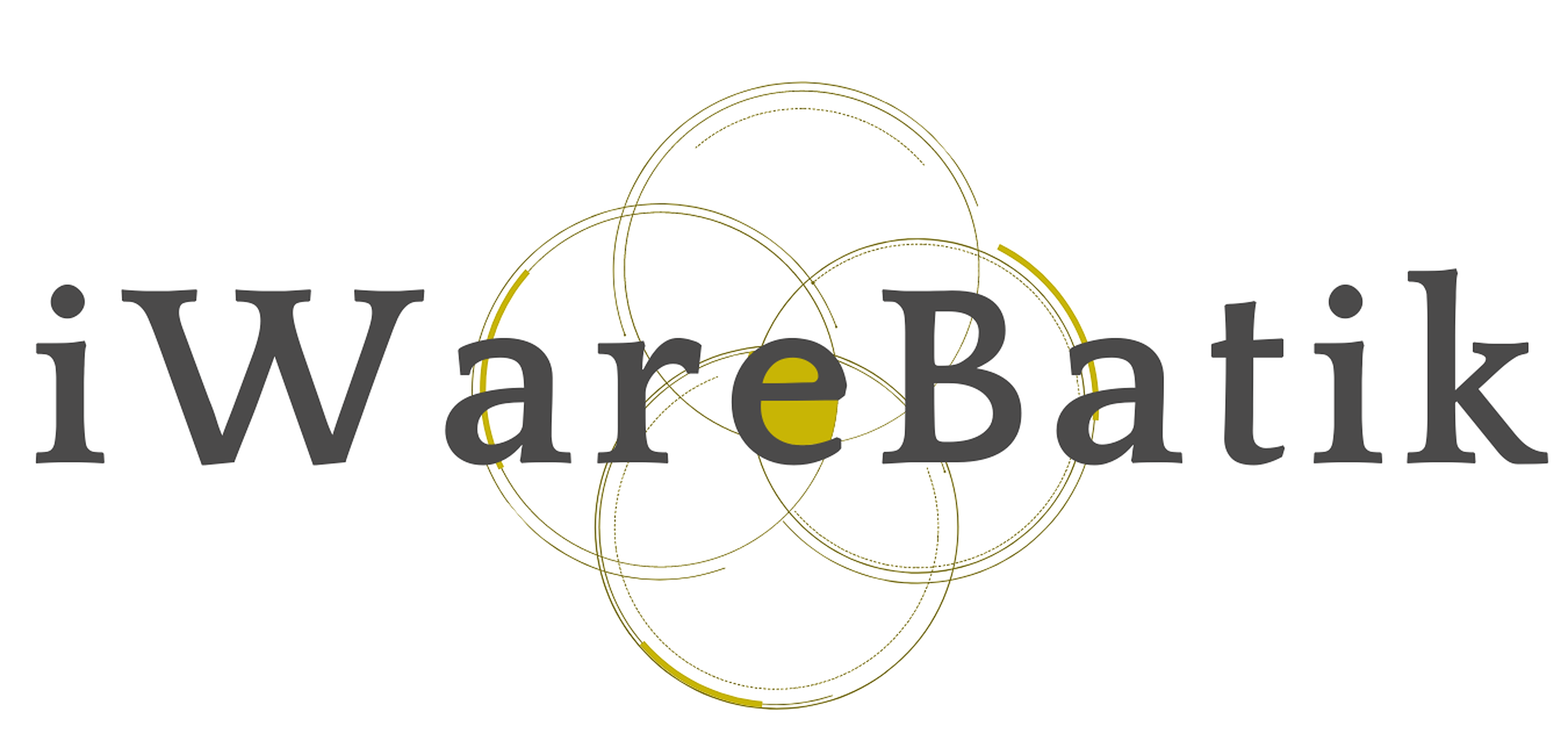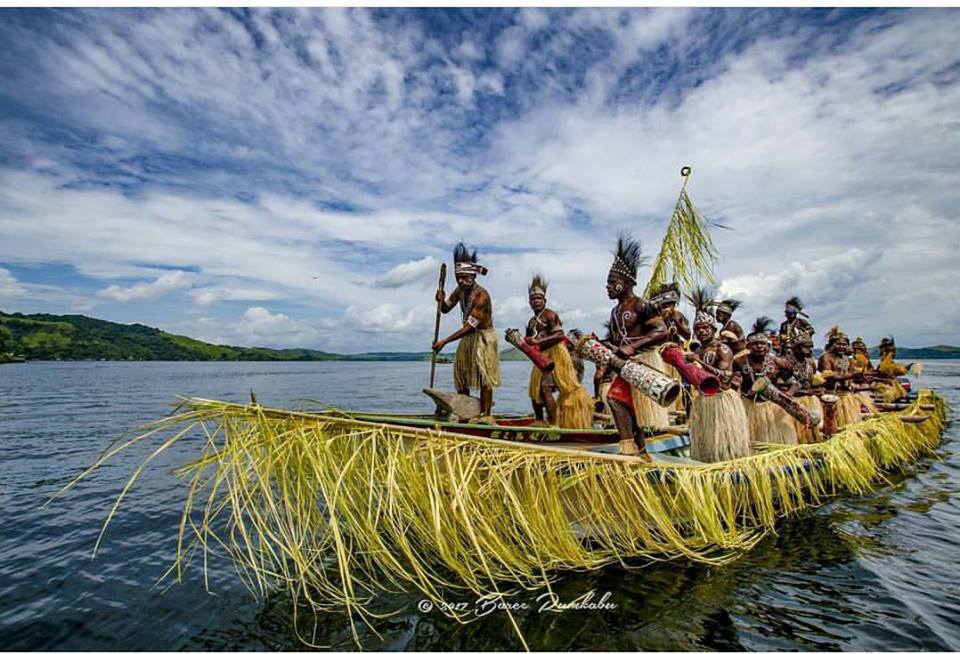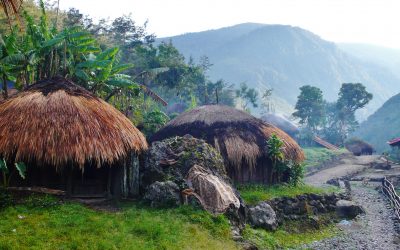Home / Batik Regions – Eastern Indonesia – Papua / Sentani Lake Festival
Cultural Destination
Embrace the spirit of the place!
Sentani Lake Festival
One of the Cultural Attraction at Sentani Lake Festival (photo: @BarceRumkabu/Amazing Papua)
The Sentani Lake (photo: Aneka Wisata)
Sentani Lake Festival
IIf you happen to be here around June 19th, you should definitely take part in this festival. This annual celebration has been created in order to develop tourism in this area based on natural wisdom and local culture. There are three main events which will be depicted as cultural shows. At the edge of the lake, you can also enjoy Papua’s handicraft exhibition and take a tour around the area.
Cultural Tourism Destination
Sentani Lake Festival
Tourist Attractions in Papua
Harlem Beach
Papua also means stunning beach places. Harlem Beach is one of them.
Baliem Valley
Apart from the breathtaking view you can enjoy here, Baliem Valley is
Papua
Batik Motifs
Ukir Sentani
The Ukir motif is a batik motif that is inspired by various traditional Sentani wood carvings
Discover
Indonesian
Batik
Motifs
Tanah Liek
The word “Tanah Liek” refers to clay in Minang language. It is also known as
Daun Simpor
This motif is inspired by the Simpor plant (Dillenia Suffruticosa) which is a typical
Leuit Sijimat
This motif reflects the daily activities of the Baduy tribe in Banten. The main ornaments of batik motif consist of:
Gigi Haruan Lidi
The Gigi Haruan Lidi motif is taken from the name of the cork fish and is a symbol of
Awan Berarak
Awan Berarak is a combination of Dayak motifs and Malay patterns. The word ‘Awan Berarak’ means the
Pinawetengan
The Pinawetengan Batik pattern was taken from a prehistoric inscription in
Wakatobi
It symbolizes the coastal beauty of the Wakatobi island and the symbol of Patra symbolizes
Daun Sirih
This motif illustrates betel leaves that are used by Lombok communities as traditional
Lontara
The Lontara script itself is a typical ancient script of Bugis and Makassar communities. History records that
Karawo Mahkuta
Mahkuta refers to Gorontalo’s traditional crown. It represents noble characters of
Tifa Totobuang
The batik motifs illustrate Maluku’s traditional music instrument called
Pattimura
Pattimura is the name of an Indonesian hero who fought against colonialism in
Pala Salawaku
This motif illustrates the unique weapons of the Maluku region, namely
Tikar Natuna
The Tikar Natuna motif is adapted from the traditional making of pandanus mats in
Sekomandi
Its philosophical meaning is the eternal union which refers to a saying “until death do us part”
Gedhog Kembang Waluh
a combination of Javanese cultural motif of the Majapahit kingdom (XII-XIV century) with
Gamolan
This motif illustrates Gamolan, a bamboo musical instrument of Lampung that is
Parang Seling
Parang Seling or “alternating daggers” is a royal batik motif. It is a feminine variant of
Raja Ampat
Raja Ampat motif represents the marine life at Raja Ampat archipelago in
Ikan tambal
The word “Ikan” refers to fish. The philosophical meaning of Ikan Tambal means is
Wirasat
Wirasat or divine inspiration is a gift from God. This inspiration is symbolized by
Kain Cual
Cual textile tradition has existed since the 17th century. The word “Cual” refers to
Cengkeh
The clove flower motif is the main commodity of the Tolitoli Regency. This motif represents
Sandeq
Sandeq Boat is a symbol of the maritime importance of the West Sulawesi region. The greatness of
Ukir Sentani
The Ukir motif is a batik motif that is inspired by various traditional Sentani wood carvings
Bintik Tujuh
The Bintik Tujuh (Seven Dots) motif has 7 white spots and green color gradation as
Tabir Tanjung
Tanjung flower is a type of Cherry tree flower, which is commonly found in
Prada Papua
The word “Prada” in the Javanese-Indonesian dialect means a batik textile that
Singayaksa
The Singayaksa motif comes from the name of a place where Sultan Hasanuddin used to
Srimanganti
The name of the Srimanganti motif is derived from Palace’s hallway that connects to
Gurdo Solo
Gurdo or garuda bird is the mount of the Indian god Vishnu. As the Sun Bird,
Karawo Pinang
Pinang refers to the Palm areca tree. This motif is considered as the original
Gajah Way Kambas
The motif illustrates the Lampung’s natural reserve, the Way Kambas. it also symbolizes
Salakanagara
Salakanagara batik motif illustrates the first kingdom in the Betawi land
Bultiya
The word ‘Bultiya’ is an acronym of the three major tribes in North Kalimantan, namely
Pati-Pati Pinehiku
It symbolizes the hierarchy in society and the social status of the Mekongga
Pohon Hayat (Tree of Life)
The Batik motifs in Lampung are dominated by the acculturation of Buddhist and
Ake Patra
Ake is related to the divinity and the composition of the universe. It is a symbol of
Kaharingan
The Kaharingan or ‘tree of life’ based on the Dayak tribes’ belief system. This tree symbolizes
Paqbarre Allo
The word “Barre” means round and “Allo” means the sunlight. This motif is interpreted as
Kuda Kupang
Horses symbolize wealth. It contains noble values of virtuous characters that bring
Gumin Tambun
Based on Hindu mythology, this motif symbolizes lucks, abundant wealth, and
Besurek Rembulan
This batik illustrates praise for God who created the wonderful universe
Keluak Daun Pakis
The word “Keluak” is a Minang language which means twisted or tangled. The Motif of
Manguni Minahasa
Manguni is identified as the symbol of the Minahasa people. Manguni is known as a
Buketan Bali
The Balinese bouquet (Buketan Bali) is a floral arrangement and the name is
Malinau Cultural Festival
You will witness a unique competition that might not be found other than in
Tenun Bima
The motifs are adopted from Bima woven textile. This pattern has received a great
Tangerang Herang
Tangerang Herang motif is a symbol of Tangerang city. The Tangerang Herang batik motif consists of
Sekar Jati
Sekar means flower and Jati refers to teak trees that symbolizes a strong mental character that
Kerawang Tegak Aceh
The Vertical Upright (Kerawang Tegak) Motif symbolizes a person who has a strong
Insang Ikan
Insang refers to the gills of the fish. This is a typical pattern of Malay ethnic who inhabits
Teguh Bersatu
This batik motif shows the strength of the people of Kupang. It also represents a sense of
Dayak Kamang
Kamang motif is generally found in the Dayak tribe shield because it is believed to
Burung Bidadari
Bidadari birds are endemic birds in Halmahera. This motif represents an
Dayak Taghol
Dayak Taghol has a distinctive style of four curved lines and small dots. This motif represents
Kaganga Tanah Rejang
If Batik Besurek combines Arabic calligraphy motifs, then the Kaganga batik takes
Lok Baintan Floating Market
As you can imagine, the most authentic thing is that you can buy things and even
Tubo Kelapa
Coconut tree is a symbol of a good character and strong mentality. It illustrates the more success a person, the more
Kawung
The Kawung motif was created by Sultan Agung Hanyokrokusumo (1593 – 1645) as a symbolic gift for
Bale Lumbu
This motif signifies the welfare of the ancient Sasak society. Bale also symbolizes the
Sero Tangga
The Sero Tangga illustrates an endearing feeling and sacrifices of a person to fulfil
Sido Mulyo
Sidomulyo is one of the classical motifs, which is specifically used for the bride’s costume in
Rumah Mamuju
the Batik motif illustrates the house of Mamuju King with the stairs, located on the left of the wooden stage house
Angsa Duo
According to legend, the Angso duo batik motif is a pair of swans that are believed to have led Princess
Jupri Kembang Teh
Kembang Teh illustrates the tendrils of tea plants that grow in the highlands of
Pucuk Rebung Riau
Pucuk Rebung symbolizes heart determination in achieving goals, good luck, and
Desa Na Tolu
The Desa Na Tolu characteristic pattern symbolizes the Batak philosophy of existence and
Hiu Taliyasan
Indonesia is also home to the world’s largest fish, the whale shark (Rhincodon typus). Hiu Taliyasan refers to
La Galigo
La Galigo is a literary work of the Buginese Epic that has 300 thousand epic lines. It is considered even
Gonggong Siput
Gonggong (Strombus Turturella) is one type of sea snail found around
Tengkawang Ampiek
With its many advantages, the Dayaks use this leaf in ritual ceremonies. This plant is a symbol of
Gorga Simeol-Meol
The Gorga Simeol-meol is a pattern of plant tendrils. it is regarded as a symbol of longevity and




